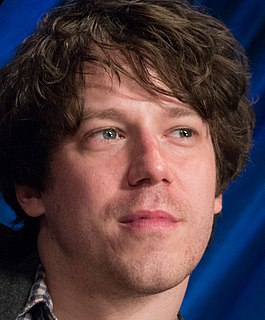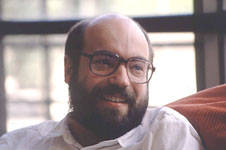A Quote by Marjane Satrapi
The most exciting time is when I think of an idea and how I imagine I can make it. It would be wonderful if there was a projector inside my eye that and it could just put the idea on the screen for people to see.
Related Quotes
I can appreciate the idea that with e-books more people would publish, the work would be easier to disseminate, and that it could even be interactive. Being a lover of photography, I especially like the idea that you could include lots of pictures - full-color pictures - with your writing. That to me is exciting! We'll all have to stay tuned to see what develops.
I don't feel bound by the ebbs and flows of musical trends, or what's happening with new music in general. I always had a fascination with that sound. It's a mixture of the idea that something could be going wrong along with the idea of bending constrained, Westernized music out of tune. But because I wasn't copying an idea, and it just came from somewhere inside me, it felt like a birth of something that most people didn't understand at the time.
Who doesn't have a dark place somewhere inside him that comes out sometimes when he's looking in a mirror? Dark and light, we are all made out of shadows like the shapes on a motion-picture screen. A lot of people think that the function of the projector is to throw light on the screen, just as the function of the story-teller is to stop fooling around and simply tell what happened, but the dark places must be there too, because without the dark places there would be no image and the figure on the screen would not exist.
If working remotely is such a great idea, why isn't everyone doing it? I think it's because we've been bred on the idea that work happens from 9 to 5, in offices and cubicles. It's no wonder that most who are employed inside that model haven't considered other options, or resist the idea that it could be any different. But it can.
The idea itself, the notion of what the next Tron could be, is exciting enough that it would be worth going back to do it. Obviously we hinted some things at the end of Legacy, it's kind of there for people to see what that potential is. So we just want to make sure that we have a script that delivers on that promise on an epic scale."
Most writers have no idea how to make a film. It's a totally different skill set. Nor is it just to translate exactly what's on the page directly on to the screen - because that would be terrible. It would be five hours long, and the structure would be a mess. But the writers know the characters and the story.
There's a screen direction in the script for the pilot where it says, 'Jim Harper, mid-20s, enters,' and it said something to the effect of: 'He's confident without being cocky. He has no idea that he could be considered attractive, because he saw All The President's Men when he was thirteen and never looked up.' It was just a great little gem of a screen direction, and I felt immediately from just that, that I had a good idea of how to play this guy.
I think that most people go to bookshops and have no idea what they want to buy. Somehow the books sit there, almost magically willing people to pick them up. The right person for the right book. Its as though they know whose life they need to be a part of, how they can make a difference, how they can teach a lesson, put a smile on a face at just the right time.
When I say: "I'm looking at you, I can see you", that means: "I can see you because I can't see what is behind you: I see you through the frame I am drawing. I can't see inside you". If I could see you from beneath or from behind, I would be God. I can see you because my back and my sides are blind. One can't even imagine what it would be like to see inside people.
For thirty years most interface design, and most comptuer design, has been headed down the path of the "dramatic" machine. Its highest idea is to make a computer so exciting, so wonderful, so interesting, that we never want to be without it. A less-traveled path I call the "invisible"; its highest idea is to make a computer so imbedded, so fitting, so natural, that we use it without even thinking about it.
I've known people who had fantastic ideas, but who couldn't get the idea off the ground because they approached everything weakly. They thought that their ideas would somehow take off by themselves, or that just coming up with an idea was enough. Let me tell you something - it's not enough. It will never be enough. You have to put the idea into action. If you don't have the motivation and the enthusiasm, your great idea will simply sit on top of your desk or inside your head and go nowhere.







































